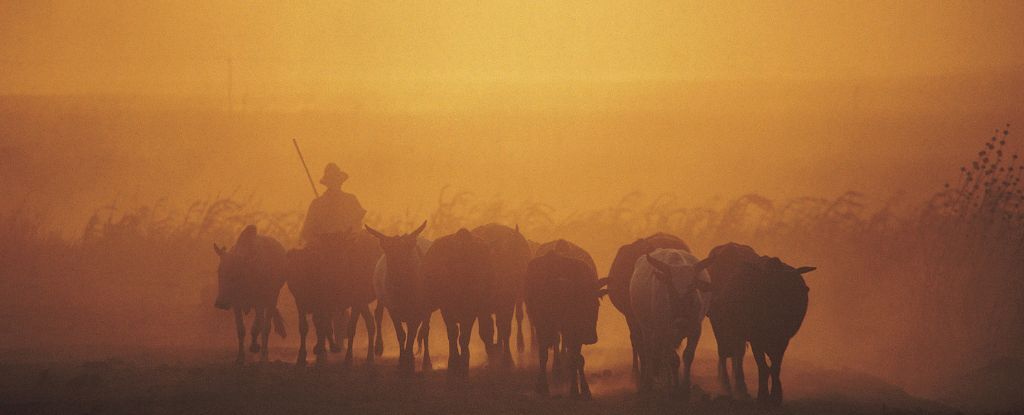The people responsible don’t care. They will be perfectly fine letting the rest of us die. They’ll only start giving a shit once cheap labor starts getting hard to come by.
Automation replaces manual works, AI replaces intellectual ones. No need for cheap labor in the short term.
You know what’s in short supply right now? People who know how to automate stuff.
I am at risk of losing my own job since it can be quite easily replaced by AI. The original post was about people having to die, so I hope to be counted in that number.
Wait I can get paid for that? Haha suckers my hourly rate is fucking steep.
Robots cost money. Sweatshop slaves work for food.
Robots don’t sleep. They don’t get sick. They don’t have federally mandates days off. They don’t commit self delete via rooftop if you overwork them. If you can be replaced by something that can do your job at 10% the speed for 1% the total cost, you will be. Such is the way of capitalist automation.
I have never seen automation fully replace the need for human workers. You still need people to maintain the equipment. All automation does is increase the amount of output. And when you start running machines at capacity you find out real quick just how much maintenance they really need.
Robots do get sick, it’s called needing maintenance.
The kind of sophisticated AI and robotics that can replace a human is much further away than some people seem to realize. That kind of technology doesn’t even exist in a lab. It will be decades before anything approaching that level even exists, and decades more before it’s an affordable, practical, mass-produced option. Even huge corporations that have the budget to invest won’t have the opportunity for quite a while.
AI learns from existing human work. Without innovation it will learn nothing of value.
This rule is actually “an order of magnitude best estimate”, which means it’s more of a range, somewhere between 0.1 to 10 deaths per 1000 tons of carbon burned.
That leaves a lot of room for scenarios even more dire than the one outlined here.
“When climate scientists run their models and then report on them, everybody leans toward being conservative, because no one wants to sound like Doctor Doom,” explains Pierce.
“We’ve done that here too and it still doesn’t look good.”
Translation: 10 billion people will die.
2nd translation: Almost everyone will die.
So what you’re saying is… we are going to enter a dark age… and we could use a Foundation to lessen it’s impact on humanity?
Or two?
deleted by creator
Or it could end up being less bad than we expect.
Said every apologist ever. Look around you man. It’s already pretty bad out there. How much worse does it need to be before you stop downplaying the situation?
“Don’t Look Up” and all that…
less bad than the conservative estimates of their models… you can’t read properly can you…
I wish I could be an optimist, too.
Nature knows how to solve this problem.
This issue is that nature is going to start with the people who contribute the least to the issue.
If only the people contributing the most could actually feel the pressure.
And those who contribute the least to this issue are also likely the ones who want it fixed the most.
By resetting earth. I wonder what species will wander the lands and waters in millions of years…
Jellyfish.
I hope bird people rise up. It’d be neat.
Probably cockroaches, I’ve seen the film
I’m thinking the Octopuses finally take over if they survive the warming oceans.
Sentient dolphins and squidkids probably
Nature is already working on it and ramping things up.
This article is bogus. It doesn’t even mention the power or thoughts and prayers once!
Wishes and spells
Well that’s fine because I have a wizard what installs programs for me
I put on my robe and wizard hat.
I cast level three eroticism
It only took 250 years since the industrial revolution to utterly doom our world.
Oh, our world will be fine, it’s not the Earth’s first mass extinction event. We - and a lot of flora and fauna we depend on - are really fucked though.
I hate seeing this take repeated. Just because there have been other mass extinction events doesn’t mean the earth will be fine this time. If we fuck things up bad enough it will cause a runaway greenhouse effect. At which point the earth will not be fine, because it will be Venus 2.0. Additionally if we kill ourselves off but somehow fall short of that point, who cares if the earth will be fine in our absence? As far as we’re aware we are the only sapient life in the universe. This dismissive, humanity hating attitude that its fine if we die off because the planet won’t literally cease to exist, is so dumb. How about if we just be better instead of going extinct?
I agree in general, but there is physically not enough CO2 on this planet to turn it into Venus. So the planet is safe in that regard. It’s going to get tough for a few hundreds of thousands of years (just a blink of an eye for the planet), then a new equilibrium will emerge.
It’s an interesting mass extinction event, too. Have we ever seen one species balloon to such predominance? Humans are like 80% of mammalian biomass on the planet. Definite loss of biodiversity. I wonder if it’s a loss of biomass too.
Hard to beat the dominance of archosaurs on Earth for about 180 mio years. Humans are a blink of an eye compared to that.
As long as we don’t kill off the bunch beetles, we’ll be okay.
Man we still fucked it all up though
Removed by mod
deleted by creator
Is the earth is getting a fever to kill the viruses that are infecting it?
It is is
I wouldn’t be surprised if a majority of those casualties in the USA will be in Florida and California.
Many of the major insurance companies stopped issuing new home owners policies in those states because it was no longer profitable or very risky. IIRC, increasing housing costs and frequency of these events was the main reason they pulled out
Yup. The same people who deny science start paying attention once their own money becomes involved.
In Florida, the issue is rising sea levels. If you look at one of those interactive maps showing the effects of a rising sea level, you’ll notice that all of southern Florida is at risk of major flooding.
In California, wildfires are the problem. As the atmosphere gets warmer and rainfall becomes unreliable, forests get drier. Fires will become bigger, spread faster, and be even more frequent.
Neither state will be a profitable place for home insurance companies.
“1 billion people on track to die”… I guess we’re doing an empirical test of the trolley problem.
We have a choice between inconveniencing some people (especially some very rich people); vs saving billions of lives by switching tracks. And apparently the empirical choice is to equivocate and delay so that we stay on the path of death and ruin. … It isn’t the solution I would have chosen personally.
If you pull the lever, ultimately nothing changes because the tipping point was wooshed past in the 1990s and this first billion will be the lucky ones who dont survive to witness the extinction of the human race
Fantastic! I want to die!
odds are greater you’ll just have to live and suffer through the heatwaves, droughts, freezes and cyclones instead, not to mention the super fun collapse of society
they seem 1 in 8, not bad
There is quite a lot of extra discussion regarding the 1000-ton rule in the artual report itself (link can ne found in the article). Here are some excerpts:
it is likely more than 300 million (“likely best case”) and less than 3 billion (“likely worst case”) will die as a result of AGW of 2 °C.
A more recent attempt at quantifying future deaths in connection with specific amounts of carbon was published by Bressler [69]. Coining an economically oriented term “mortality cost of carbon”, he claimed that “for every 4434 metric tons of CO2 pumped into the atmosphere beyond the 2020 rate of emissions, one person globally will die prematurely from the increased temperature”. His predictions were confined to deaths from extreme heat when wet-bulb temperature exceeds skin temperature (35 °C).
Some interesting stuff in there.
I would’ve added more but holy shit the mdpi.com mobile website is atrocious to copy stuff from. It keeps throwing me at the end of the entire article, highlighting everything.
And with your help we can make sure that that number includes those that need to die.
deleted by creator
It’s not actually junk prediction, though you might call it doom-bait journalism. WHO put climate change related deaths at like 150,000 people annually in the year 2000. Those numbers will obviously go up, which is why they’re backed in a lot of studies, but the real rub on reporting here is that they’re talking about “over the course of a century”. So it’s a completely reasonable estimate, it just ignores a lot of nuance like “some countries are having higher population growth so we’re not going to just lose 1 billion (though these deaths are theoretically preventable)” but also “the vast majority of these deaths will be concentrated in Southeast Asia and poorer countries.”
deleted by creator
Yeah, anyone remember “10 in 2010”? You know, where everyone was panicking because there were going to be 10 billion people on Earth in 2010. The best thing anyone can do for their case is to stick to facts.
…so far.














